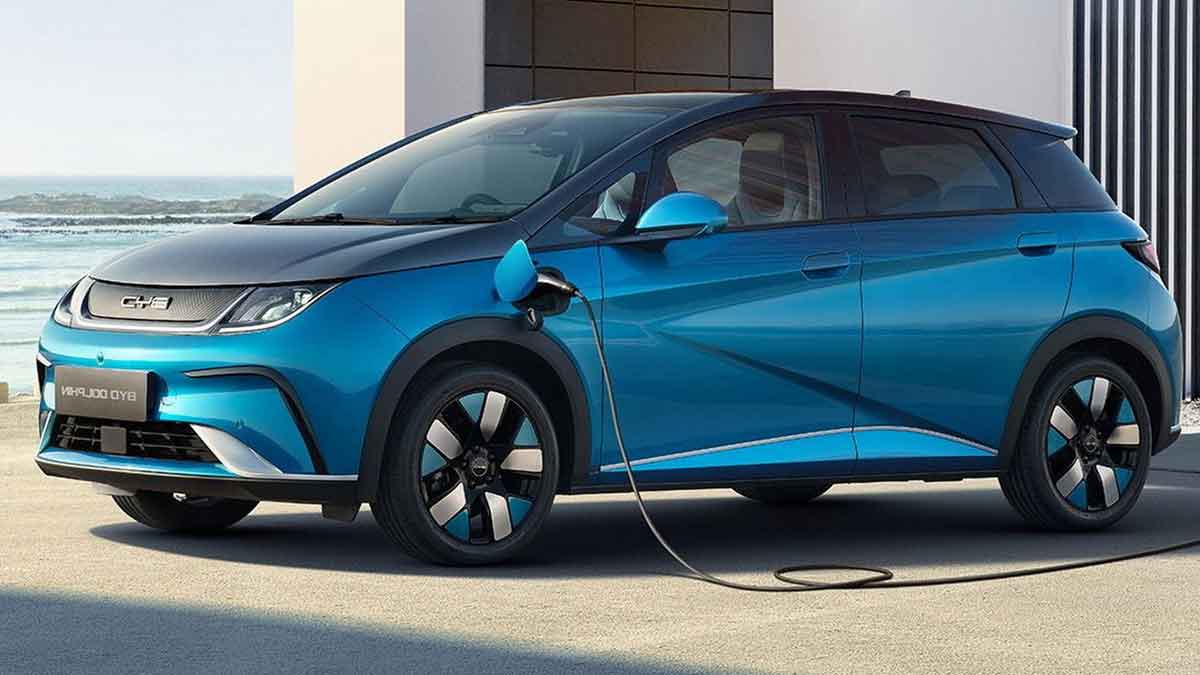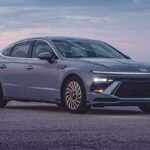- Home
- Billionaires
- Investing Newsletters
- 193CC 1000
- Article Layout 2
- Article Layout 3
- Article Layout 4
- Article Layout 5
- Article Layout 6
- Article Layout 7
- Article Layout 8
- Article Layout 9
- Article Layout 10
- Article Layout 11
- Article Layout 12
- Article Layout 13
- Article Layout 14
- Article Sidebar
- Post Format
- pages
- Archive Layouts
- Post Gallery
- Post Video Background
- Post Review
- Sponsored Post
- Leadership
- Business
- Money
- Small Business
- Innovation
- Shop
Recent Posts
Chinese EVs Threaten Legacy Automakers’ Future

Legacy automakers are facing a critical challenge as the market for electric vehicles (EVs) evolves. Recent events, such as Mercedes-Benz retracting its commitment to sell only electric cars by 2030 and Ford delaying its $12 billion electrification plan, suggest a wavering commitment to EVs. However, this hesitation could be a misstep, as Chinese automakers are poised to disrupt the market with affordable EVs that offer similar or better quality than their Western counterparts.
One of the main barriers to widespread EV adoption has been their higher cost compared to traditional internal combustion engine (ICE) vehicles. Legacy automakers have primarily focused on premium models, hoping to offset the costs of electrification with higher margins. This strategy, while understandable, has limited the availability of affordable EVs, especially in the secondhand market.
Despite a growing number of EV models entering the market, price parity with ICE vehicles has been slower to achieve than anticipated. The cost of lithium-ion batteries, a key component in EVs, has fluctuated due to economic factors, delaying the expected price drop for EVs. While prices are expected to decrease in the coming years, mainstream affordability for EVs, even in the secondhand market, is still some time away.
Chinese automakers, however, are poised to capitalize on this gap in the market. Companies like BYD, with backing from investors like Warren Buffett, are already leading the charge in affordable EVs. The BYD Dolphin, for example, offers a compact hatchback starting at a fraction of the price of Western equivalents. Other Chinese brands like MG, ZEEKR, XPENG, and NIO are also making significant strides in offering high-quality EVs at competitive prices.
The competitive advantage of Chinese EVs lies in their lower production costs, particularly for batteries. Chinese-made batteries are significantly cheaper than those produced in the USA or Europe, giving Chinese automakers room to undercut their Western counterparts. While tariffs and import duties may limit the direct impact of Chinese EVs in North American and European markets, the window of opportunity for Chinese companies to gain market share is clear.
In conclusion, the reluctance of legacy automakers to prioritize the development of affordable EVs could leave them vulnerable to competition from Chinese brands. As Chinese EVs continue to improve in quality and affordability, they could reshape the global automotive market. If legacy automakers fail to adapt, they risk being left behind in the EV revolution.
Recent Posts
Categories
- 193cc Digital Assets2
- 5G1
- Aerospace & Defense21
- AI17
- Arts1
- Banking & Insurance11
- Big Data3
- Billionaires153
- Boats & Planes1
- Business134
- Careers13
- Cars & Bikes39
- CEO Network1
- CFO Network16
- CHRO Network1
- CIO Network1
- Cloud6
- CMO Network17
- Commercial Real Estate7
- Consultant1
- Consumer Tech46
- CxO1
- Cybersecurity12
- Dining1
- Diversity, Equity & Inclusion4
- Education6
- Energy8
- Enterprise Tech24
- Events11
- Fintech1
- Food & Drink2
- Franchises1
- Freelance1
- Future Of Work2
- Games61
- GIG1
- Healthcare28
- Hollywood & Entertainment41
- Houses1
- Innovation21
- Investing2
- Investing Newsletters4
- Leadership62
- Lifestyle9
- Manufacturing1
- Markets19
- Media101
- Mobile phone1
- Money13
- Personal Finance2
- Policy109
- Real Estate1
- Research6
- Retirement1
- Small Business1
- SportsMoney4
- Style & Beauty1
- Success Income1
- Taxes1
- Travel9
- Uncategorized1
- Vices1
- Watches & Jewelry1
- world's billionaires127
Related Articles
2024 Hyundai Sonata Hybrid: Efficient and Spirited Sedan
The 2024 Hyundai Sonata Hybrid Limited is a spirited and efficient sedan...
By 193cc Agency CouncilMay 13, 2024Porsche 718 GT4 RS Receives Manthey Nürburgring Treatment
Manthey, known for their expertise at the Nürburgring Nordschleife, has teamed up...
By 193cc Agency CouncilMay 11, 2024Frontline LE60: V8-Powered MGB GT Restomod Review
As the Euromillions jackpot peaks at an astounding £130 million ($163 million),...
By 193cc Agency CouncilMay 10, 20242025 Rolls-Royce Cullinan Series II Unveiled
The 2025 Rolls-Royce Cullinan Series II has been unveiled, marking a significant...
By 193cc Agency CouncilMay 9, 2024














Leave a comment